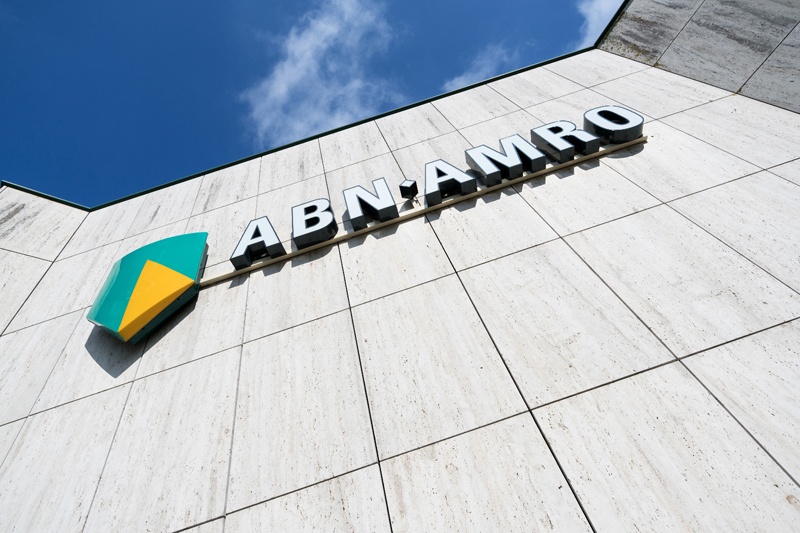THE HAGUE: The Netherlands' third-largest bank ABN Amro is to pay a €480-million ($575 million) settlement to prosecutors after a probe found the bank failed to comply with anti-money laundering laws. The bank's announcement follows a 2019 investigation by prosecutors who said the Amsterdam-based bank failed to sufficiently monitor bank accounts and did not report "unusual transactions" or reported them too late.
"Between 2014 to 2020, ABN Amro... failed to fulfil its role as gatekeeper with a view to combating money laundering," ABN Amro admitted in a statement on Monday. The bank "has accepted a transaction of 480 million euros offered by the Public Prosecution Service," it added. Prosecutors focused on ABN Amro after its supervisor, the Dutch Central Bank (DNB), ordered it in August 2019 to audit all five million of its private clients.
Two former top ABN Amro officials, former manager Chris Vogelzang and former chief executive Gerrit Zalm, announced yesterday they were resigning from their current jobs at Denmark's Danske Bank as a result of the findings. Departing Danske Bank chief executive Vogelzang was now a suspect in the case, Dutch media reports added.
Prosecutors said three individuals in total were under investigation, without naming them. In the Danske Bank statement, Vogelzang said he was "surprised" but added that the prosecutors' move "does not imply that I will be charged" - saying he had discharged his duties at ABN "with integrity and dedication".
For its part, the Dutch public prosecution service said in a statement that by making the payment, "ABN Amro has taken accountability for the commission of criminal offences". The bank "seriously failed to comply" with a Dutch law aimed at stopping money laundering and preventing funds from being used for terrorism, they added. "Various clients who engage in criminal activities have been able to abuse ABN Amro's accounts and services for a long time," prosecutors said in a statement.
"ABN Amro should have seen that certain flows of money that went through the bank accounts... may have originated from a crime" and "has not taken sufficient action against this," they added. Investors appeared relieved at yesterday's announcement taking the legal risks to the bank off the table, as ABN Amro's share price rose by almost 1.5 percent by lunchtime on the Amsterdam stock exchange.
'Strong enough buffers'
Although the latest scandal to hit Dutch banking could dent ABN Amro's image, analysts said it was unlikely to significantly impact its bottom line. "The payment will result in the bank booking a modest loss in 1Q21 as the impact is partly offset by impairment releases," ING bank researchers said. "In our view the bank has strong enough buffers to absorb the impact," they added.
The ABN Amro probe came in the wake of a massive €775-million ($928 million) fine dished out to top Dutch bank ING in 2018 over money laundering after it failed to ensure its accounts were not misused. That scandal saw ING axe its chief financial officer Koos Timmermans after a two-year probe by Dutch authorities that found many white-collar crime suspects held accounts at the bank.
The case threatened to seriously damage ING's reputation and triggered calls for its directors to resign. The Dutch state is still a majority stakeholder in ABN Amro after bailing the bank out following the 2008 crisis. ABN Amro returned to Amsterdam's stock exchange in 2015 in what was described as "one of the biggest IPOs by a European lender since the financial crisis". The Netherlands' third-largest bank behind ING and Rabobank, ABN Amro traces its roots back to the 19th century. - AFP











